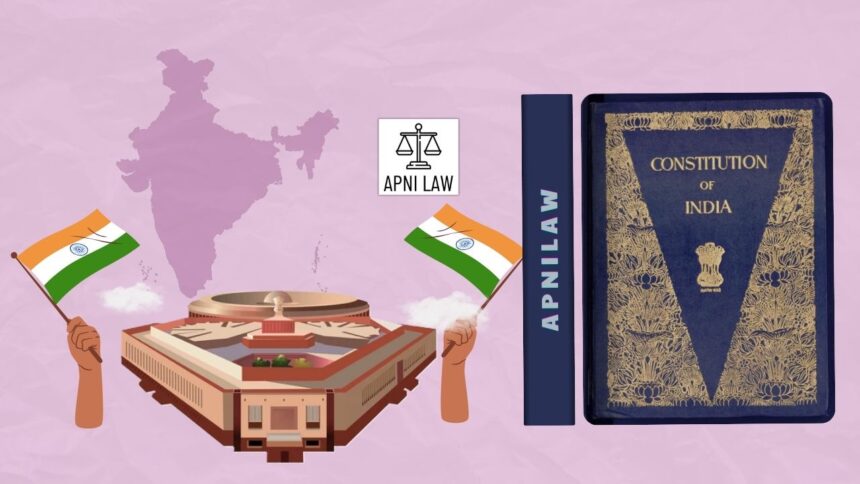Introduction
The Indian Constitution is not only a framework of rights and powers but also a charter of responsibilities. While much attention often goes to Fundamental Rights, the Fundamental Duties introduced by the 42nd Constitutional Amendment in 1976 remain equally significant. They remind citizens that rights and duties are two sides of the same coin. In a modern democracy like India, where diversity is vast and aspirations are constantly evolving, Fundamental Duties act as a guiding light. They shape civic responsibility, promote national unity, and ensure that citizens do not just demand entitlements but also contribute to the nation’s welfare.
Historical Context of Fundamental Duties
When the Constitution was adopted in 1950, it contained Fundamental Rights and Directive Principles but no explicit list of duties. The framers believed that duties would flow naturally from citizens in a free nation. However, with time, challenges such as indiscipline, lack of awareness, and misuse of rights made it clear that constitutional duties needed formal recognition. The Swaran Singh Committee, set up during the Emergency, recommended their inclusion. Based on its advice, the 42nd Amendment inserted Article 51A, which listed ten Fundamental Duties. Later, the 86th Amendment in 2002 added an eleventh duty, requiring parents or guardians to provide education to children between six and fourteen years of age.
Balancing Rights with Duties
In a democracy, rights empower individuals, but without duties, those rights can lead to imbalance. Fundamental Duties remind every citizen that their freedoms come with responsibility. For instance, the right to free speech is balanced by the duty not to spread hatred or disrupt harmony. The right to education is complemented by the duty of parents to ensure that their children attend school. This balance prevents the misuse of rights and strengthens the foundation of democratic governance.
Promoting National Unity and Patriotism
One of the main aims of Fundamental Duties is to foster national unity. Duties such as respecting the Constitution, the national flag, and the national anthem create a shared identity among citizens. In a country as diverse as India, where religion, language, and culture vary widely, these duties act as threads that bind people together. They encourage patriotism without imposing uniformity, allowing citizens to feel pride in their nation while respecting its diversity.
Civic Responsibility and Environmental Awareness
The duties also highlight the role of individuals in addressing modern challenges. For example, Article 51A(g) places on citizens the duty to protect the environment, forests, and wildlife. This reflects the awareness that government policies alone cannot solve environmental issues. Every citizen has a role to play, whether by reducing waste, planting trees, or conserving resources. Similarly, the duty to safeguard public property and abjure violence emphasizes respect for shared spaces and peaceful coexistence, values that are essential in modern society.
Relevance in Education and Youth Development
Fundamental Duties are especially important for the younger generation. By learning about duties in schools and colleges, young citizens understand that democracy is not only about claiming rights but also about contributing to the community. The eleventh duty, added by the 86th Amendment, specifically emphasizes this by making education a joint responsibility of parents, guardians, and the State. When children are educated, they not only benefit personally but also strengthen the democratic fabric of the nation.
Role in Strengthening Democracy
Democracy thrives not only on institutions but also on responsible citizens. Duties such as promoting harmony, protecting the dignity of women, and striving towards excellence in all fields of activity help build an ethical society. When citizens fulfill these obligations, governance becomes more effective because laws and policies can succeed only when supported by public cooperation. In this way, Fundamental Duties play a silent yet powerful role in deepening democratic values.
Judicial Interpretation and Duties in Practice
Although Fundamental Duties are not directly enforceable in courts, the judiciary has often emphasized their importance. In several cases, courts have linked duties with rights, showing that they cannot exist in isolation. For example, in environmental cases, the Supreme Court has reminded citizens of their duty under Article 51A(g). Similarly, in cases involving public property and harmony, the courts have used duties as guiding principles. This shows that while duties may not create direct legal obligations, they shape judicial reasoning and influence policy-making.
Challenges in Realizing Fundamental Duties
Despite their importance, many citizens remain unaware of their Fundamental Duties. This lack of awareness often results in indifference toward responsibilities such as protecting public property or respecting the rights of others. Another challenge is that while rights are enforceable in courts, duties lack a strong enforcement mechanism. This makes them appear more like moral guidelines than binding obligations. However, their true value lies in voluntary observance. A society that internalizes duties will naturally create a culture of responsibility and cooperation.
FAQs
Why were Fundamental Duties added to the Constitution?
They were added through the 42nd Amendment in 1976 to remind citizens that democracy involves not only rights but also responsibilities.
Are Fundamental Duties enforceable by law?
No, they are not directly enforceable in courts, but Parliament can pass laws to give effect to them, and courts often use them to interpret rights and duties.
Which Fundamental Duty was added by the 86th Amendment?
The 86th Amendment in 2002 added the duty of parents or guardians to provide education to children aged six to fourteen years.
Conclusion
The Fundamental Duties of the Indian Constitution are not ornamental words but guiding principles that shape the character of citizenship. They remind people that rights and duties must move together to build a just, responsible, and united society. In modern India, where challenges such as inequality, environmental degradation, and social division persist, the role of duties is more crucial than ever. By respecting the Constitution, protecting the environment, promoting harmony, and ensuring education, citizens contribute directly to strengthening democracy. While they may not be enforceable, their spirit is vital for the nation’s progress. If rights are the soul of democracy, duties are its conscience, ensuring that freedom is matched with responsibility.
For any specific query call at +91 – 8569843472








